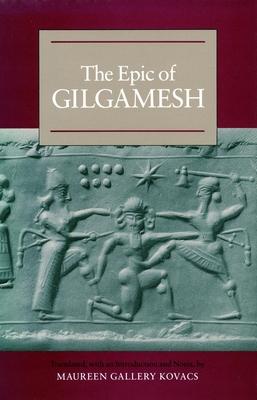Since the discovery over one hundred years ago of a body of Mesopotamian poetry preserved on clay tablets, what has come to be known as the Epic of Gilgamesh has been considered a masterpiece of ancient literature. It recounts the deeds of a hero-king of ancient Mesopotamia, following him through adventures and encounters with men and gods alike. Yet the central concerns of the Epic lie deeper than the lively and exotic storyline: they revolve around a man's eternal struggle with the limitations of human nature, and encompass the basic human feelings of loneliness, friendship, love, loss, revenge, and the fear of the oblivion of death. These themes are developed in a distinctly Mesopotamian idiom, to be sure, but with a sensitivity and intensity that touch the modern reader across the chasm of three thousand years. This translation presents the Epic to the general reader in a clear narrative.

Since the discovery over one hundred years ago of a body of Mesopotamian poetry preserved on clay tablets, what has come to be known as the Epic of Gilgamesh has been considered a masterpiece of ancient literature. It recounts the deeds of a hero-king of ancient Mesopotamia, following him through adventures and encounters with men and gods alike. Yet the central concerns of the Epic lie deeper than the lively and exotic storyline: they revolve around a man's eternal struggle with the limitations of human nature, and encompass the basic human feelings of loneliness, friendship, love, loss, revenge, and the fear of the oblivion of death. These themes are developed in a distinctly Mesopotamian idiom, to be sure, but with a sensitivity and intensity that touch the modern reader across the chasm of three thousand years. This translation presents the Epic to the general reader in a clear narrative.